In early August, Luno, the UK-based crypto company operating in four African countries, became one of the first startups to offer South Africans tokenised US-listed stocks. One month later, over 10,000 users have bought tokenised shares through the platform, according to Marius Reitz, Luno’s general manager for Africa and Europe.
The early surge suggests that South Africans are quick to adopt digital assets that ease longstanding barriers in the financial system, such as high fees, foreign-exchange hurdles, and settlement delays. Tokenisation, by contrast, offers lower costs, instant access, and round-the-clock trading.
“We launched with 44 stocks,” said Reitz. “Since launch, we have added 15 more stocks, and we have also added exchange-traded funds, including the S&P 500, which is one of the favourites among our customers. Customer interest has grown week-on-week, and the feedback has been positive.”
While the adoption indicates strong demand for digital assets, it raises questions over investor protection, taxation, and how far regulators can keep pace with digital asset innovation.
What tokenisation means
Tokenisation refers to creating digital representations of real-world assets (RWAs) such as equities, property, or vehicles. In Luno’s case, customers are buying blockchain-based tokens that reflect the value of US-listed shares rather than the equities themselves, leaving them without the investor rights associated with traditional securities.
The advantages lie in convenience and liquidity. Tokenised Apple shares (xAPPL), for instance, can be traded at any hour and transferred between wallets without intermediaries.
Locally, stock exchanges are trying to compete with the always-on level of trading that tokenised stocks provide. In August, Johannesburg Stock Exchange (JSE) CEO, Mary Vilakazi, told Bloomberg that the bourse is considering a move to round-the-clock trading.
Globally, tokenisation is gaining momentum. Goldman Sachs, BNY Mellon, and several asset managers are experimenting with digital versions of money market funds and other securities to reduce costs, accelerate settlement, and reach new investors. Tokenised assets can also be used in decentralised finance (DeFi) protocols as collateral for loans.
Why Luno moved first
Luno rolled out tokenised US equities in partnership with xStocks, the tokenisation product of Kraken, the global crypto company. This gave South Africans access to tokenised shares of more than 60 public US companies and ETFs, such as Apple, Tesla, and the S&P 500. The actual shares are bought and held by regulated brokers and banks, while the digital tokens that represent them are handled by cryptocurrency providers, said Reitz.
“There’s a separation of duties when it comes to [asset custody],” he added. “Kraken has been around for more than ten years, they’re a trusted brand, and they enabled us to bring this product to market in a way that is safe, transparent, and easy to use.”
When a customer buys Luno tokenised stocks, the money first goes through Kraken’s regulated payments arm, Payward Digital Solutions. The funds are then sent to Backed, which converts them into US dollars and passes them to its broker in the United States. The broker buys the actual shares, which are held in regulated custody. Backed then creates a digital version of those shares on the blockchain and delivers them to partners such as Kraken and Luno.
The real shares are held separately from company assets in regulated custody accounts, so they remain safe if a partner were to fail. But if the digital tokens are stored on an exchange that goes bankrupt, customers may lose access until administrators resolve the claims. However, since tokenised assets are digital tokens, users can move them into self-custody wallets.
Luno charges a flat 1% fee on trades, which, according to Reitz, was designed to be transparent, compared to the hidden conversion costs and spreads that South Africans face when buying tokenised stocks offshore.
The product also positions Luno against rivals such as VALR. But in the wider $341 million tokenisation market in South Africa, it competes with players like ReFi Cape Town and Salient Yachts offering tokenised access to other physical assets.
“Our competitor [South Africa’s VALR] only offers five stocks,” said Reitz. “So our offering is much deeper and puts much more choice in the hands of customers.”
Regulatory grey zones
The growth of tokenised assets is forcing regulators to confront difficult questions.. Unlike traditional equities, tokenised stocks do not come with the same level of investor protection stop-gaps that securities laws provide.
In South Africa, securities are taxed under capital gains and dividend withholding rules. Crypto and digital assets are treated differently; they are taxed as capital gains for long-term holders or as income for active traders. Yet the South African Revenue Service (SARS) has struggled to enforce compliance for crypto disclosures.
As of August 2025, only 17,000 out of six million crypto holders in South Africa have declared their crypto assets and filed the required taxes. Applying existing tax regimes to tokenised assets could be more complicated, since they sit in a grey area between securities and digital tokens.
The cross-border, digital nature of tokenised stocks further complicates oversight of trading and money flows. While Luno stresses that it applies stringent know-your-customer and anti–money laundering checks to curb illicit flows on the blockchain, it remains unclear whether such systems are sufficient to address products that mimic traditional securities.
“We are a regulated financial service provider in South Africa,” Reitz said. “Any product that we offer to our customers must be compliant with regulations, else we risk losing our licence. There must be a balance between investor protection, which is of paramount importance, and innovation.”
Industry sceptics are unconvinced. The World Federation of Exchanges (WFE), the trade association of publicly regulated stock, futures, and options exchanges, has warned that tokenising traditional assets undermines the ability of regulators to do their jobs and safeguard consumers.
Still, the early traction of Luno’s product suggests tokenisation addresses real market gaps. For the sector to move from a niche experiment into mainstream finance, however, regulators will need to create clearer frameworks around investor protection and taxation at a pace that matches rising adoption.
Mark your calendars! Moonshot by TechCabal is back in Lagos on October 15–16! Join Africa’s top founders, creatives & tech leaders for 2 days of keynotes, mixers & future-forward ideas. Early bird tickets now 20% off—don’t snooze! moonshot.techcabal.com








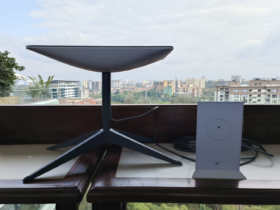

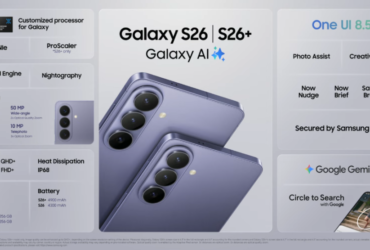

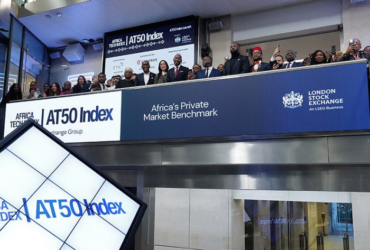
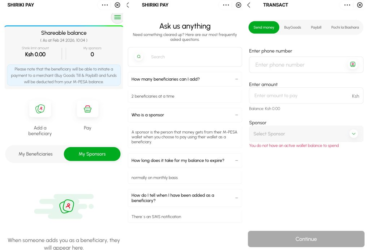
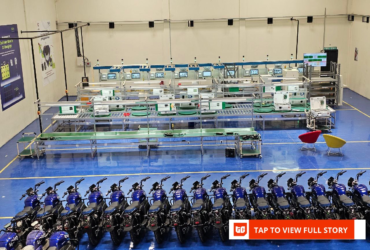

Leave a Reply